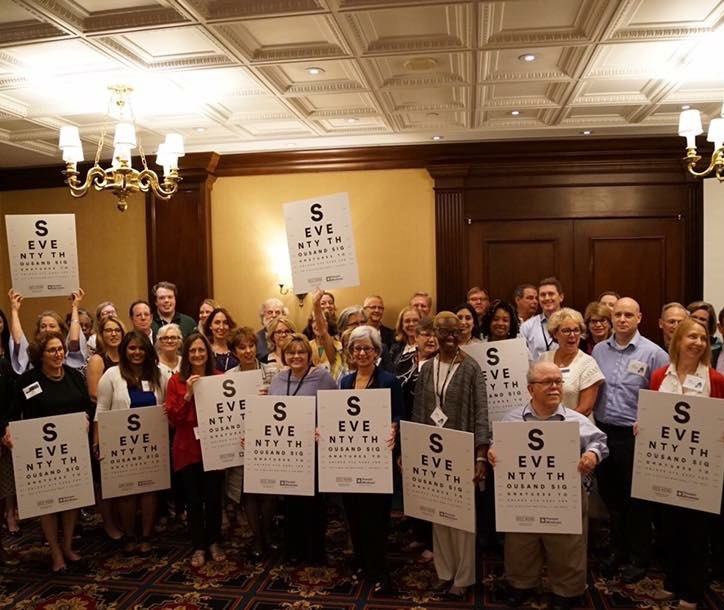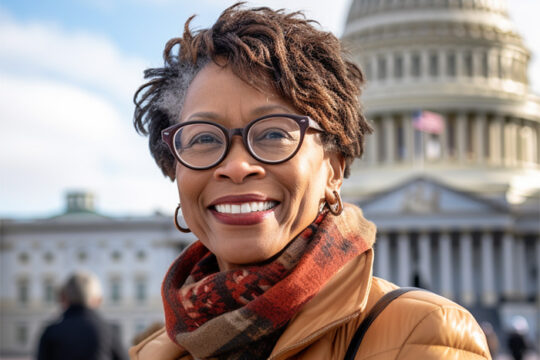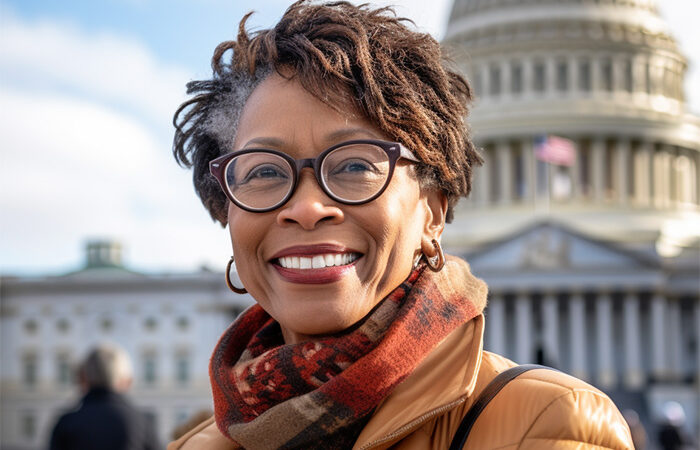How to Become an Advocate for Vision
Getting started with advocacy can feel overwhelming, but you don’t need to wait. You can begin right where you are, with your own experience and these simple steps.
Think about your experience with vision
Are you a patient, family member, or ally? Did your vision loss come suddenly or over time? These experiences are the foundation of your advocacy.
Everyone Can Be an Advocate
Reflect on your journey
What moved you from unawareness to action? These moments can guide your goals and make your story powerful. Stories connect the data to real lives and move people to act.
Why Storytelling Matters
Define the problem
What change do you want? What’s essential, and what’s negotiable? Broad or narrow, knowing your goal helps shape your advocacy. There’s no such thing as being “important enough” or “disabled enough” to advocate—your perspective matters as it is.
There’s No “Right Kind” of Advocate
Know who to ask
Match your goal to the right decision-maker. Federal issues belong in Congress, while local concerns may be best addressed by city or state leaders. And if you’re unsure where to begin, our lobbyist can help point you in the right direction.
A Lobbyist’s Guide to Advocacy
Build your case
Do your research. Learn from others, gather facts, and listen to different viewpoints. Meetings can feel intimidating, but there’s a formula for success—and our advocates are eager to share their tips and experiences.
Meeting a Lawmaker
Pace yourself
Advocacy is a long journey with ups and downs. Stay hopeful, reset when needed, and keep going. Remember, other advocates have stood where you are—you’re walking in their footsteps and helping shape the world you want to live in.
Advocacy is a Marathon, Not a Sprint
Find allies
Advocacy is easier when you don’t do it alone. Partner with others, share experiences, and support one another along the way. Many advocates say that leaning on community helps them speak up, even when they feel nervous. Providers—like doctors and nurses—can also be powerful allies, lending their expertise and voices alongside patients and families to amplify the call for change.







